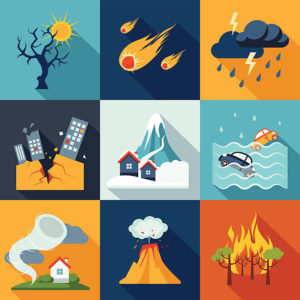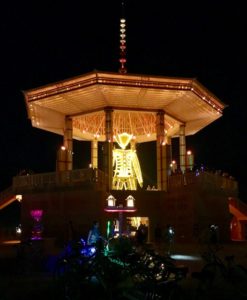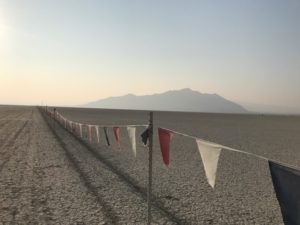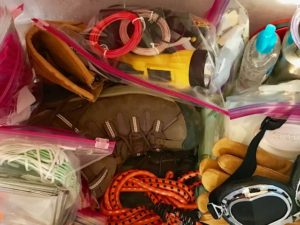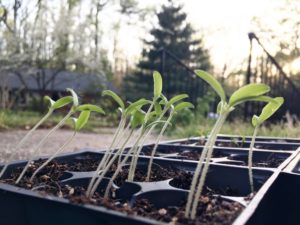Category — Life
Let The Nutcracker season begin!
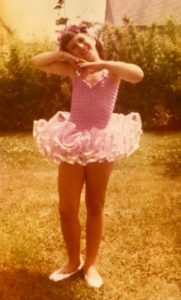 The Troyanoff Ballet Academy is a single-studio dance school, a storefront wedged between a dry cleaner and a pizza joint in a Long Island strip mall. My mother drives me there, twice a week, Tuesday and Thursday after school to take classes with Professor Troyanoff and his seriously arthritic wife, Madame Troyanoff. They were Russian dancers of little renown who left the Motherland between the two world wars. My mother calls them “white Russians” to distinguish them from the Reds, this being the Cold War.
The Troyanoff Ballet Academy is a single-studio dance school, a storefront wedged between a dry cleaner and a pizza joint in a Long Island strip mall. My mother drives me there, twice a week, Tuesday and Thursday after school to take classes with Professor Troyanoff and his seriously arthritic wife, Madame Troyanoff. They were Russian dancers of little renown who left the Motherland between the two world wars. My mother calls them “white Russians” to distinguish them from the Reds, this being the Cold War.
The distinction is lost on me. The inelegance of the Academy is lost on me. I am six, seven, eight, nine, and what matters is pulling on pale pink tights and a black three-quarter-sleeve leotard in the tiny dressing room no bigger than a closet, sitting on the bench on the side of the studio and carefully slipping my feet into soft leather slippers. What matters to me is standing at the barre: first position, demi-plié, plié, relevé, second position, third, fourth, fifth; tendus, battements, rond de jambs, arabesques; and later, in the center of the room, glissades, the thrill of the grand jété. What matters is dancing.
The Professor is a kindly middle-aged man with a handsome fleshy face and a luxuriant head of silver hair who wears snug t-shirts, billowing trousers and black leather ballet slippers. While he instructs, his accent so thick one or another of us has to ask him to repeat, again and again, his wife, stern and crabby, stalks the studio leaning on a cane. When one of us gets sloppy, when our grand pliés are not grand enough or our turn-outs are not turned out enough, she raps the back of our legs with the cane. It doesn’t hurt as much as the idea of it hurts. I learn much later that her ballet career in the old country crippled her before she turned forty.
The Professor loves to choreograph. He puts together bits and pieces of what my mother tells me are the classics, each little dance ending in dramatic grand tableaux with all sixteen or eighteen or twenty of us young dancers striking and holding poses. The Academy presents two parent-pleasing recitals a year held in whatever elementary school the Professor manages to persuade to host us. I love the music. I love learning the steps. I love the costumes, the lavender tutu edged in silver with matching silver-sprayed ballet slippers…
from the introduction to my book, Raising the Barre: Big Dreams, False Starts and My Mid-Life Quest to Dance the Nutcracker, to mark the publication of the PAPERBACK edition and the start of yet another Nutcracker season.
November 15, 2017 No Comments
Living with disasters, Iceland style
On the narrow, two-lane “highway” that skirts the southern coast of Iceland there are big, illuminated signs that track and report wind velocity. As Jón Ágúst, a quintessentially unflappable native Icelander explains, when the wind blows at a certain speed (the measurement is in meters per second so I’m not even going to bother to give you the stats), it is difficult to keep a car on the road.
When the wind is somewhat stronger, it is “not advisable,” he says, to be on the road. Even stronger wind can whip up gravel, pebbles, even rocks from the surrounding lava fields, creating a geological hailstorm that dents the bodies and breaks the windshields of cars whose owners chose to ignore the illuminated signs (or were Americans who could not do the meters to miles/ seconds to hour conversions). Jón Ágúst points out a new patch of asphalt on the road. It is, he says, a repair job after an “especially strong wind” sent chunks of asphalt flying, ripping up an entire section of the road.
Now the highway is paralleling a bridge, a very long bridge. “That’s the longest bridge in Iceland,” Jón Ágúst says. The bridge is not in use nor, as far as I can tell, does it bridge anything. “There used to a river there,” he explains. The river was formed during one of the country’s many volcanic eruptions and glacier runs. Then, during another of the country’s many volcanic eruptions and glacier runs, the river changed course. “But who knows,” says Jón Ágúst. He offers a hint of a smile. “We might need that bridge again some day.”
Why do I recount this for you? Because it speaks to the Icelandic attitude toward the vicissitudes of life—and boy do these people have vicissitudes—which stands in direct opposition to our Disaster! Catastrophe! Crisis! mentality. These people experience volcanic eruptions, lava flows, glacier runs, geological hailstorms, raging rivers, killer winds, deep freezes, financial exigencies, the fall of their government—which occurred with barely a ripple when I was there—and they make it through. They take care of business. Which is to say they don’t panic. They don’t cry “disaster.” They batten down the hatches; they look after their neighbors; they watch for sneaker waves; they stay off the road. They respect the volatility of their environment. They know how to survive. They know how to care for those who don’t.
October 4, 2017 1 Comment
Ignite. Or be gone.
At Burning Man, I was a virgin, as first-timers are called. Two weeks later, at the 19th gathering of the shamans in Iceland, I was the only uninitiated. And so, for close to a month, in two places on earth that could not be more geologically different, and at two gatherings that could not be more culturally and energetically dissimilar, I have been mulling the meaning of being the outsider and the insider, of the value of both, and of the surprisingly porous membrane between the two.
I began as an outsider to both experiences, I was an empty vessel, a sponge. Everything was new, mysterious, confusing – and that was both exciting and uncomfortable. It was like walking into an ongoing, animated conversation you very much wanted to understand and be part of but couldn’t. I asked the questions– to others, to myself – that a child asks: What is that? What are you doing? What does that mean?
Curiosity is a wondrous thing, and being an outsider is an stimulating place to be. But it is also a lonely place. An outsider is, alas, outside, outside the circle of friendship, the heat of the fire. An outsider is outside collective history, outside collective memory.
And then, a few days in, things begin to change. The experience of yesterday becomes a memory, the memory a story, the story shared. The days together accumulate, the stories accumulate. And one day you wake up and you realize there is a place for you, a place that is held being for you, and you slowly inhabit it. The circle expands to let you in.
Knowing that you can travel afar/
But that everywhere is home.
September 27, 2017 3 Comments
Disaster! Catastrophe! Armageddon!
News you can use.
For those in the path of hurricanes, for those threatened by wild fires, daily, hourly – minute-by-minute — reports and updates are a necessity and a blessing. The media providing these reports offer important, sometimes life-saving information. Thank you for your service.
For the rest of us, deluged not by tropical storms but by a tsunami of hyperbolic media coverage, the purpose of this incessant attention to natural disasters is problematic.* This ginned-up, brave-reporters-holding-onto-poles-in-100-miles-an-hour-wind journalism is overwrought. Of course I care (both in the abstract and because I have family in Florida and Georgia) about people in harm’s way. But, as there is nothing we can do while whatever unfolds unfolds, as we are not ourselves threatened, it seems to me that our position as spectators is uncomfortably like that of drivers slowing down to gawk at a accident by the side of the road. Also, as some media explicitly packaged Harvey, Irma and the forest fires in the west as “Armageddon,” we feel even more besieged, more vulnerable, more victimized by forces beyond our control than we have during the past six months sinking in the quicksand of Trumpism. Now there is a unnatural disaster for you.
For the media, these back-to-back-to-back “catastrophes” are gold. The storms are stories that come neatly pre-packaged in three acts: Act I: The Anticipation, Act II: The Event, Act II: The Aftermath. There’s video, oh so much video. There’s drama you don’t have to look for because it literally slaps you upside the head. No deep reporting necessary. Point the camera at trees whipping in the wind. Stick a mic in the face of a person who made it to a temporary storm shelter. How bad was it? How much did you lose? Insert yourself (and camera) into the ongoing challenges of a first responder. It may be momentarily dangerous for the intrepid reporter, but it is easy peasy. No pesky FOIA requests, no scouring documents, no spending weeks, months trying to understand communities and cultures. And the clicks! Oh Lordy, the clicks. So much traffic to the site. So many eyeballs. What a boon a good disaster is for the media!
And what a disaster for us, as we settle deeply into our lives of spectatorship (football, anyone?), as we are hammered by messages of our victimization, as we embrace what psychologists call Learned Helplessness, as we avoid the deep issues and challenges that don’t just zip across the landscape, dump on us for a few days, lose their force and move on.
*Early on, there was minor attention to the idea that the hurricanes were tied to human-caused climate change. There appeared to be little scientific evidence to support this.
September 13, 2017 No Comments
Burning Man
Burning Man asks the question: What would a contingent of privileged 21st century people do if they could do anything, if they were given a blank slate – the vast, stark, featureless playa – to create an instant community? The answer, as I observed as a Virgin Burner last week, is complicated. They–we–create beauty and ugliness, generosity and self-indulgence, Eden and dystopia and live for a week in a world of breathtaking sunsets and choking dust storms. Burners wash your dusty feet, take drugs, practice yoga at dawn, party all night, give away hot dogs and gin and tonics, make noise, dress in utility kilts or bootie shorts or tutus or nothing at all. They make art, big, bright, hard-edged art. They make music. They dance. They mist your scorched skin with precious water when you ride by on your bicycle. They tinker. They invent. They create something where nothing was. They make life in a dead place.
But they do not live lightly on this stretch of alkali flats. They use enormous resources to create this city of 70,000: thousands and thousands of gallons of potable water delivered by trucks, thousands of gallons of gray water spirited away, thousands of gallons of gas to power the blazing Art Cars that traverse the playa every night, thousands and thousands of gallons of propane to power the generators that support each camp. Hundreds of porta potties serviced every day. This is a resource-gobbling, tech-heavy vision of the future.
And mostly, despite the hugs everyone gives everyone and the gift economy (no money changes hands on the playa) and the many small kindnesses you encounter–and those you perform yourself–it is a harsh vision of the future. A post-apocalytpic vision of industrial grunge and consensual hedonism, with hulking trucks and laser beams scanning the night sky and blaring noise and too-bright lights, a Disneyland meets Las Vegas meets Mad Max world where strangers wash your naked body and you can spend an hour in the Orgasmatron on your way to watching fights in the Thunderdome.
On my last morning in Black Rock City, I was riding my playa-caked Hammer & Cyclery fat-tire bike on Lustrate, the farthest from the center street, a long, dusty several mile horseshoe of a ride. I was watching the dawn clouds dissipate in the already blistering heat. On one side of me was the city, on the other, the open playa. On the playa side, there was a grizzled man riding a squeaky bike pulling a trailer with a vintage boombox bungee-ed to the frame. As he came closer, I could hear the music. It was Donovan’s “Catch the Wind.” The innocence of that music, its softness, its almost silly simplicity, the gentleness of it. I stood there, straddling my bike, and I cried.
September 6, 2017 5 Comments
Getting UNcomfortable
I like making myself uncomfortable, placing myself somewhere I do not belong, where I am the new kid, confused, awkward, unsure — and thus alert, deeply curious, open to seeing, open to learning. I realize the privilege of this. I know many people live their entire lives feeling uncomfortable in their bodies, their families, their communities, our society. It’s not that I don’t have those feelings, all of those feelings, from time to time. But the fact is, I am safe. And so I have the privilege of purposely pushing myself into new situations that throw me off balance, the purpose being to understand people different than myself, to keep myself as humble as I can (that is, a learner, always a learner) and to test my own resilience.
I did this when I spent 18 months immersed in middle school to write about tween/teen girl culture. I did it when I joined a ballet company to see if I could reclaim an old dancing dream. And I am doing it now, and have been for the past two years, when I go up to Oregon State Penitentiary to spend time with a group of prison writers.
And tomorrow… for something completely different. Frivolous, yes, but also deeply deeply uncomfortable. Tomorrow I leave with a group of ten others to go to Burning Man. We are the Eugene contingent helping to staff a venerable bicycle rental and repair camp. Of course I have known about Burning Man for years, but I’ve never been in the least tempted to go. It seemed, well, male – it is Burning MAN – and insistently Millennial. And self-consciously arty. And suffused with all those drugs I didn’t need to do any more because, as Huxley said, once you open the doors of perception, you don’t have to keep opening them. Plus, in my dotage, I am more careful with my neurons.
But I’m going. I am going because I want the experience of helping to create a city of 70,000 people where nothing, and I mean nothing, exists, in a stark, ridiculously inhospitable environment in the middle of nowhere (well, actually, in northwestern Nevada). That, alone, terrifies me. And then there’s this: The tattoo on my back is older than most of the people I’m traveling and will be camping with.
I’ll report back. Don’t look for a post next Wednesday. I’ll be, as they say, “on playa.”
(One of THREE bins packed for The Burn, pictured above, includes nothing I’ve ever packed for a trip before: el-wire, dust masks, goggles, ear plugs, shemagh, Snow White halloween costume, combat boots.)
August 23, 2017 7 Comments
Clearing the Decks
Ah the fine art of self-sabotage that some of us (cough, cough) are known to practice so diligently as to become masters. I myself am particularly adept at one excellent self-sabotaging strategy, the “I’ll just clear the decks” approach. (Explained, along with other excellent self-sabotaging behaviors, in The Write Path.)
Let’s say you have some important creative work to do. For example: A book. A book you care deeply about. A book that is the most challenging work you’ve ever done. It is hard. I mean: It is hard. The molding of it, the shaping of it, the finding a way through the experience, the writing into a place of knowing. It is so hard that one plots ways not to work as one simultaneously proclaims (to oneself) passion and commitment for the work. (And by “one” I mean me.)
Thus the “I’ll just clear the decks” approach.
I’ll get serious, I’ll buckle down, I’ll really start to work once I take care of all the little stuff that’s currently cluttering the “decks.” For example: Those 30 pounds of peaches we picked this weekend that need to be skinned, pitted, sliced and freezer-bagged. The peach-juicy counters that now need to be cleaned. Which makes the OTHER counters look bad by comparison, so, yeah, those. And the floor. Better put a load of laundry in. While I’m at it, I might as well strip the bed and change the bed linen. I need to make that appointment with the dental hygienist. And take a picture of those weird cucumbers I just went out into the garden to pick so I can post in instagram. And then look at what others have posted. And check my newsfeeds for the latest Trump catastrophe. Read the latest WaPo story. I’ll just scan the first few dozen comments. And now, gee, it’s 3 pm, and I can’t start in on serious work this late.
Thus concludes a successful day at self-sabotage.
(Sound of reveille) Good morning! Those decks I cleared yesterday so I could jump in and write today? Wouldn’t you know it, they’re cluttered again.
But right now, this very moment, as soon as I post this on my blog, I AM GOING TO WORK.
August 16, 2017 13 Comments
Humility
I am the least racist person you will ever meet.
This was the largest audience to ever witness an inauguration, period.
I have assembled the best cabinet in the history of the world.
People have given me credit for having great chemistry with all of the leaders.
Never has there been a president….with few exceptions…who’s passed more legislation, who’s done more things than I have.
Ah, the fine art of humility as practiced by the Leader of the Free World.
Let us, please, not become numb to the vanity, the hubris, the narcissism, the self-aggrandizement, the heart-stopping lack of perspective – the amorality – of all this because we hear it everyday, because it has become part of the political canon, the cultural canon. Because egomaniacal statements like this are the stuff of funny memes and clever Facebook posts and witty Shouts & Murmurs columns. We laugh. Okay, laugh. But do not forget: This is not normal. This is not good. This, in fact, erodes the soul.
You know what feeds the soul? Humility.
Humility is not self-doubt or self-deprecation. It is not meekness. You do not give up “pride” in yourself when you are humble. You give up being prideful. “Humility is not thinking less of yourself, but thinking of yourself less.” (The quote is attributed to, among others, Christian philosopher C.S. Lewis and Islamic theologian Waleed Basyouni. Point taken.)
Humility is a recognition of who you are and your place is the world. (Carl Sagan famously said, “We are like butterflies who flutter for a day and think it’s forever.”) Or, should you want to be even more humble, your place in the universe. (as in “tiny speck”). It’s worth considering that the term “humility” comes from the Latin word humilitas, a noun related to the adjective humilis, which may be translated as “humble” but also as “grounded” or “from the earth,” as in humus (earth).
And so, drowning in this sea of bloated, inflated, self-serving rhetoric, let us swim toward land. Let us plant our feet, stay grounded, from the earth, humble.
(Well, okay, Ali WAS the greatest.)
August 9, 2017 1 Comment
On alert
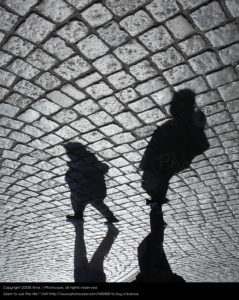 I was walking west on Morrison in downtown Portland yesterday late afternoon when I heard a voice behind me. “Passing on your left,” the voice, male, said. I thought, gee, some guy is riding his bike on a busy sidewalk? What a jerk. But he wasn’t. Riding a bike. Or a jerk.
I was walking west on Morrison in downtown Portland yesterday late afternoon when I heard a voice behind me. “Passing on your left,” the voice, male, said. I thought, gee, some guy is riding his bike on a busy sidewalk? What a jerk. But he wasn’t. Riding a bike. Or a jerk.
He was an ordinary looking 40ish white guy dressed in conservative jeans and a short-sleeved dress shirt, and he passed me on the left, walking. I watched him out of the corner of my eye. Then I couldn’t help myself. “Hey,” I said. He was only a few steps ahead of me. “I’ve never had anyone say ‘passing on the left’ who wasn’t on a bike.”
He seemed slightly taken aback that I opened a conversation. I was also slightly taken aback. He slowed his pace so we were walking side by side. “I didn’t want to startle you,” he said. We then we had a spirited four-block conversation about how men don’t realize how threatening they can be when they walk closely behind a woman or pass by her when she isn’t expecting it.
He said all of that. I didn’t.
Of course, I have spent my entire adult life looking over my shoulder if I find myself walking alone on a sketchy street or in an iffy neighborhood or, on the best streets in the loveliest of neighborhoods when it’s dark. I take note of the man walking behind me and pay attention to the sound of his footfalls. Is he getting closer? I check out the man on the other side of the street. Is he making a move to cross the street? I am not in a panic. This is just what I do. I stay alert to the potential threat. The threat a man on the street poses to me. The threat men pose to women.
If it’s a man – race isn’t the issue, gender is — I am on alert. If it’s a woman, I’m not. Yes, I know that most men don’t attack women, but in Chicago, on the street just a half a block from my apartment, one attacked me. He wanted my groceries and my money, that’s all. I was lucky. Yes, I know women can be attackers, but in Seattle, on a downtown street late at night, it was a man I had to run from.
The fact that this unassuming, sort of dorky (no PDX hipster was he) guy was sensitive to what his presence might mean to a woman alone – that was a revelation. I hope he has sons.
August 2, 2017 3 Comments
Lean into the YES
I have been thinking so very much these days about the power of yes. What started me thinking about this, paradoxically, was encountering “no.” A while back, and for the first time I can remember, someone in a position of power (over me) said no. I don’t mean “no, I am not giving my permission/ blessing/ support.” I’ve heard that many times. You pitch ideas, and sometimes they go nowhere. You keep pitching. I mean “no, I do not believe you are capable of doing this. No, I do not believe in you.” Gobsmacked I was. Blindsided. It is a testament to the power of that “no” that I am still processing it more than a year later. What it made me realize was the extraordinary power of yes. We lean into the yes, wherever we find it, like a plant leans into the sun.
I’ve never had a mentor, but at various points in my life, I’ve had people who said yes, people who believed in me, people who expressed, in small — and unexpected — ways, that they thought I was capable of great things. What an extraordinary difference this can make. What an extraordinary difference this has made.
Mr. Hawkey, ramrod straight, starched collar (equally starched personality), Mr. Discipline, Mr. Hard-ass – my 11th grade English teacher – said to me, as I exited his classroom on the last day, “Don’t waste your talent.” Wow. Mr. Hawkey thought I had talent.
Otis Pease, the best and most brilliant professor I’ve ever had or could hope to have, treated me with quiet respect. To be respected by a man like that was almost overwhelming. It made me want to be worthy. It inspired me.
A few years later, I had a brief encounter with Robin Morgan, a name that might not be familiar to you. Robin Morgan was a pillar of the second-wave feminist movement, the co-founder of Ms., an author, a poet, a national voice. A big deal. She was delivering a speech on campus, and I got to introduce her. The speech was amazing. She was amazing. I had never been that close to someone who burned so brightly, who radiated such energy, whose energy filled a space so completely. After the speech, when I ran over, beating the crowd, to grasp her hand, she looked at me, really looked at me, and said: “Lauren, you’re up next.” The power of that ignited me.
More recently, and ever so miraculously — I still do not believe it — Eugene Ballet Company artistic director Toni Pimble said yes, you can join the company, yes, you can dance with us. Yes, I believe in you. And because she believed, I believed even more. And I danced.
And now I somehow lucked into Steven Finster, Yes-man (and I mean that in the best sense) extraordinaire, who makes my work at Oregon State Penitentiary possible, who believes in opportunity and challenge, change and redemption — and in the good in all of us.
That’s what we all need: People who see our potential. People who believe in us. People who say yes.
July 26, 2017 2 Comments



